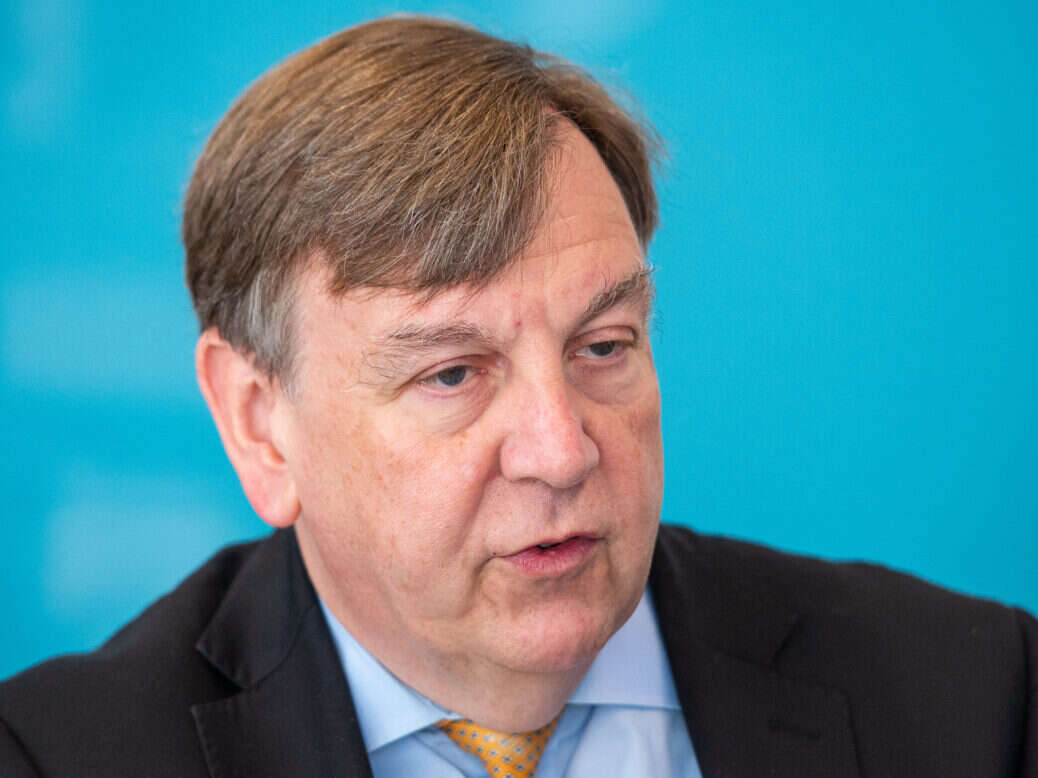
The National Union of Journalists has slammed ex-Culture Secretary John Whittingdale’s suggestion that the BBC could be funded through a combination of a government grant and a subscription as “extremely dangerous”.
Whittingdale, who was Culture Secretary from 2015 to 2016 and Media Minister for 18 months until September last year, told the i a “core” BBC public service including news and children’s TV could be funded by government grants.
Anything else would be an optional extra for which the public could pay a Netflix-style subscription fee, Whittingdale suggested as a “progressive” solution for the BBC although he added it would only work after the rollout of superfast broadband is complete.
He told the newspaper: “Is it not better to fund a core BBC package through a central government grant and taxation?
“Instead of £159 a year, it would be a reduced amount to pay for the things an insufficient amount of people would be willing to pay for – news, current affairs and arts programmes.”
However Seamus Dooley, NUJ assistant general secretary, warned such proposals would impact the BBC‘s ability to produce public service broadcasting and employ the numbers of staff it currently does.
“The world-class service provided by the BBC is threatened yet again by new attempts to limit funding. John Whittingdale’s kite flying proposals display a narrow vision of public service broadcasting, with no regard for the BBC’s vital role in providing quality sports and entertainment across a variety of genres.
“He suggests that a grant would fund news, current affairs and arts programmes,” Dooley said. “This is such a limited view of public service broadcasting that it beggars belief.
“To place funding for so much important programming at the mercy of a voluntary subscription system would be a dangerous step which would add perpetual uncertainty to the future of the BBC.
“A Netflix-style subscription model would undermine public service broadcasting in the UK and would not be good for consumers or the UK’s creative industry which is in large part driven by the corporation.
“The NUJ will be seeking assurances that ministers do not share the sentiments of these extremely dangerous proposals.”
Press Gazette approached the Department for Digital, Culture, Media & Sport on its former minister’s comments but it did not comment.
However the BBC’s licence fee model is currently in place until 2027 and, although it will be reviewed well in advance of the charter period ending, no decision has been made on the potential end of the licence fee.
[Read more: Nadine Dorries’ colourful clashes with the media]
Whittingdale told the i that Nadine Dorries, who succeeded Oliver Dowden as Culture Secretary in September’s reshuffle, would be “unlikely to be more generous” on the BBC licence fee “given the cost of living squeeze facing all households”.
In November Dorries told MPs: “Ahead of the next charter review process, we will undertake a detailed look at the TV licence model to ensure that it is fit for the future.”
Talks over licence fee terms for the next five years are near completion. The Times reported that a real-terms reduction is expected, with cuts likely to come as a result at the BBC.
[Read more: National Audit Office says journalist morale hit at cost-cutting BBC]
A BBC spokesperson told Press Gazette: “The licence fee is the agreed method of BBC funding until at least 2027 and it continues to ensure the BBC is an independent, universal broadcaster, which invests in UK creativity and talent.”
Email pged@pressgazette.co.uk to point out mistakes, provide story tips or send in a letter for publication on our "Letters Page" blog
